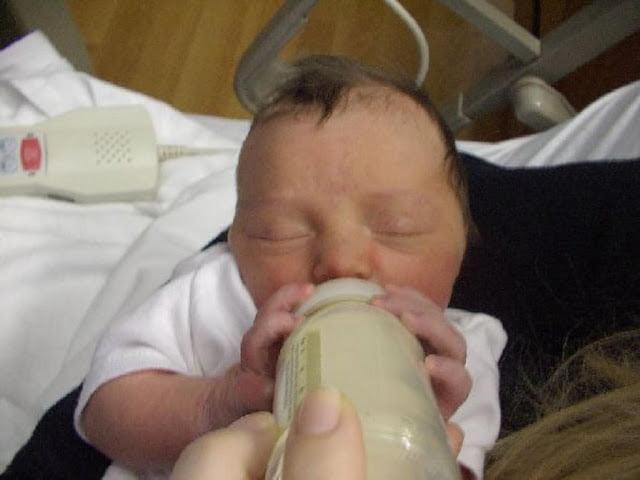
A Mother’s Journey: Navigating Postpartum Recovery
The journey of motherhood continues long after the delivery room lights dim and the baby’s first cry echoes through the hospital halls. The postpartum period, also known as the puerperium, is a critical time for both the mother and the newborn. It’s a period of significant physical and emotional adjustments as the mother’s body recovers from childbirth and adapts to caring for a newborn. In this article, we’ll delve into the insights shared by Op. Dr. Nadir Cömert, a renowned specialist in Obstetrics and Gynecology at Medicana Sivas Hospital, about the essential things mothers need to keep in mind upon discharge from the hospital and during the weeks that follow.
From Hospital to Home: Essential Postpartum Guidance
Dr. Cömert emphasizes that adhering to the discharge instructions provided by healthcare professionals is crucial for a smooth recovery. This begins with proper wound care. For instance, surgical wounds like those from a cesarean section need to be kept clean and dry. Dr. Cömert and his team generally use waterproof dressings to make showering possible while also protecting the wound from moisture. He typically schedules a wound check on the fourth day after discharge to assess healing.
Medications, prescribed by the attending physician, play a key role in postpartum recovery. Antibiotics are often prescribed to prevent infections, and in certain cases, like after a cesarean section, blood thinners might be necessary. Iron supplements are commonly given to address postpartum anemia, a condition where the mother’s iron levels are lower than normal.
Beyond medications, Dr. Cömert recommends the use of corsets, particularly after a cesarean section, to provide abdominal support and help strengthen abdominal muscles as they heal. He also advises against sexual intercourse for approximately six weeks, allowing sufficient time for the mother’s body to recover fully.
Caring for the Newborn: Early Days and Potential Issues
As for the newborn, Dr. Cömert highlights the importance of breastfeeding. Breast milk provides the optimal nutrition for a baby and strengthens the mother-infant bond. Frequent breastfeeding, about every three hours, helps ensure adequate milk flow and prevents breast engorgement, a condition that causes discomfort and swelling in the breasts. If breasts feel overly full or tight between feedings, using a breast pump can provide relief and prevent complications.
Addressing a common concern for new mothers, Dr. Cömert provides reassurance on how to identify potential infections: “If the swelling persists despite regular feeding and pumping, accompanied by redness and pain, then it’s likely an infection. It’s essential for mothers to consult with their OB-GYN if this occurs.”
Dr. Cömert also stresses the importance of monitoring the newborn for jaundice, a common condition in the first few days of life, which usually resolves on its own but needs to be assessed by a pediatrician around the third or fourth day after birth.
Navigating Common Postpartum Symptoms
Dr. Cömert delves deeper into addressing common concerns about postpartum symptoms like breast changes, vaginal bleeding, and feelings of fatigue.
Concerning breast issues, Dr. Cömert explains, “The increase in milk production can cause enlargement of the milk ducts, which might lead to breast swelling. For this reason, babies should be breastfed every three hours.”
Postpartum vaginal bleeding is another crucial aspect to monitor. “Vaginal bleeding after delivery is expected, but it’s important to consult an OB-GYN if you notice excessively heavy bleeding. Breastfeeding significantly reduces this risk, as it helps the uterus contract,” adds Dr. Cömert.
Postpartum fatigue is a reality for many new mothers, but Dr. Cömert provides guidance on how to manage it. “During the postpartum period, mothers still have increased calorie and nutritional needs. Iron and other essential nutrient deficiencies can contribute to feelings of exhaustion. I generally prescribe iron supplements for at least a month,” he explains. Dr. Cömert also advises new mothers to prioritize rest and good nutrition. Consulting with a dietitian for a customized meal plan is a helpful option, especially during breastfeeding.
The Importance of Postpartum Check-Ups
Addressing the crucial question of follow-up appointments, Dr. Cömert underscores, “New mothers should not miss follow-up appointments with their OB-GYN and pediatrician.” These visits are critical to monitor the mother’s healing and assess the baby’s growth and development, catching potential issues early.
Dr. Cömert’s approach echoes the emphasis on comprehensive postpartum care that goes beyond the physical aspects of recovery. Emotional and mental well-being are equally important during this time of transition, and mothers should not hesitate to seek support from healthcare professionals, family, and friends if needed.
Beyond Recovery: The Benefits of Breastfeeding
In Dr. Cömert’s view, the benefits of breastfeeding extend beyond just nourishing the baby. He explains, “Breastfeeding plays a key role in postpartum recovery. It helps the uterus return to its normal size, reducing postpartum bleeding.” He also points out the health benefits for mothers, such as lowering the risks of breast and ovarian cancers, as well as reducing the risk of osteoporosis later in life.
Dr. Cömert sheds light on the intricate link between breastfeeding and the mother’s emotional well-being. “When mothers breastfeed, the release of the hormone oxytocin contributes to emotional well-being,” he elaborates. Research indicates that breastfeeding mothers experience a notable decrease in cortisol and adrenaline levels, offering a calming effect that can be particularly valuable in coping with the everyday stresses of early motherhood.
In this exploration of postpartum recovery, we’ve covered vital insights from a leading medical expert. Dr. Cömert’s advice provides a compass for mothers as they navigate this transformative period, empowering them to prioritize their health and well-being while building a loving and nurturing bond with their baby. Remember, a mother’s recovery journey doesn’t have to be navigated alone. Leaning on the support of family, friends, and healthcare professionals can create a smoother and more joyful transition into this exciting new chapter.
Lisoderm







